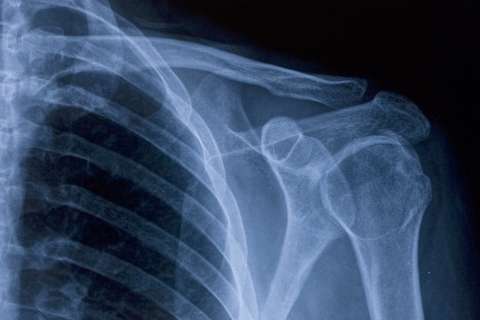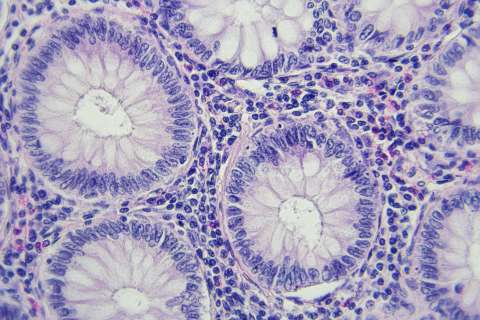Integrative medicine uses Whole Person Health, an approach that goes beyond a prescribed pill and empowers individuals to actively participate in their own healing. The growing movement seeks to holistically promote patients’ wellness, incorporating practices from ancient healing traditions such as yoga, tai chi and meditation as a complement to established treatments, according to the UCLA Health Integrative Medicine Collaborative.
UCLA Health psychiatrist Helen Lavretsky, MD, has been researching the health impacts of tai chi for 15 years. Now she is leading the first implementation trial of the traditional Chinese mind-body practice at UCLA Health and three other major large health care systems nationwide, including Tufts University, Cleveland Clinic and Boston University.
Until recently, the field of integrative medicine had been conducting “relatively small” efficacy trials on the health effects of tai chi and the mechanisms of its response, Dr. Lavretsky says. This new pragmatic trial will work at a larger scale, aiming to provide evidence for the benefits of integrating tai chi as a regular preventive and therapeutic treatment into health care systems and communities.
Originating in China thousands of years ago, tai chi is a mindful exercise practice that combines meditation, deep breathing, and a series of gentle movements, according to the American Tai Chi and Qigong Association.
Tai chi’s moderate intensity makes it especially well-suited for aging patients, and in recent research has been found to improve heart, muscle and joint health, improve balance and lessen the likelihood of falls, reduce stress, and support mental health and cognitive function. Tai chi is now recommended for individuals with arthritis according to the Arthritis Foundation.
Impacts on depression
Over the course of her work, Dr. Lavretsky has investigated the benefits of tai chi for elderly patients with depression. Past research on such patients being treated with antidepressant medication alone found that more than 60% failed to achieve remission, facing a higher occurrence of chronic pain, illness and overall cognitive decline.
In her 2011 study, the first of its kind, Dr. Lavretsky observed the effects of weekly tai chi practice in conjunction with prescribed standard antidepressants. Patients were randomly assigned to either weekly tai chi lessons or health education classes to control for the nonspecific attention and social support they’d receive in a group setting. Those practicing tai chi were found to have a higher chance of achieving remission and demonstrated less severe symptoms and markers of stress, as well as improvements in cognitive functioning.
The finding that groups practicing tai chi showed significant improvements in the brain led Dr. Lavretsky to her next study, in which she explored the effects of tai chi practice on brain function.
Depression was associated with reduced activity and connections between brain regions, especially within the default mode network (DMN), a brain structure involved in social cognition, self-referential processes and episodic memory.
Dr. Lavretsky found that patients training weekly in tai chi alongside standard antidepressant treatment showed a “significantly greater increase in DMN connectivity” than patients taking health education classes in brain imaging results. Learning tai chi “trains the brain to form connections between regions of the brain that regulate movement, mood and cognitive function, thus improving brain neuroplasticity,” she says.
Patients showed increased connectivity within the cingulo-opercular network, a brain region affected by high inflammation. This led Dr. Lavretsky to a topic for another study: the impact of tai chi on stress and inflammation.
“Depression is a highly inflammatory disease state,” says Dr. Lavretsky. “Conscious attention to the breath and slowing it down decreases your heart rate and your blood pressure, and balances your autonomic nervous system to decrease your cortisol levels.”
In her 2023 study, she explored the effect of tai chi on cytokine levels, a marker of inflammation. The study found no difference in cytokine levels between patients who underwent tai chi or health education, but did note that, generally, depression remission was accompanied by a reduction in inflammatory cytokine levels.
Future research
Dr. Lavretsky’s current project, the nationwide implementation trial, is intended to make tai chi part of mainstream medical practice. Her research, funded by the National Center for Complementary and Integrative Health, will target the implementation of virtual tai chi training for patients with chronic knee pain.
“We will work with all stakeholders, including health care leadership, primary care physicians, patients, and caregivers to share benefits of implementing tai chi as part of mainstream medical care, and generate evidence for the best approaches for implementation,” she says.
The study also aims to train tai chi instructors to aid in bringing the practice to each health care system in a low-cost and accessible format, as classes can be shared virtually.
The trial has joined the NIH Pragmatic Trials Collaboratory as part of the Rethinking Clinical Trials initiative and researchers are preparing to recruit patients in a year. More information about the study and updates about recruitment will be posted on the Rethinking Clinical Trials website.
Maanasi Kademani is the author of this article.




